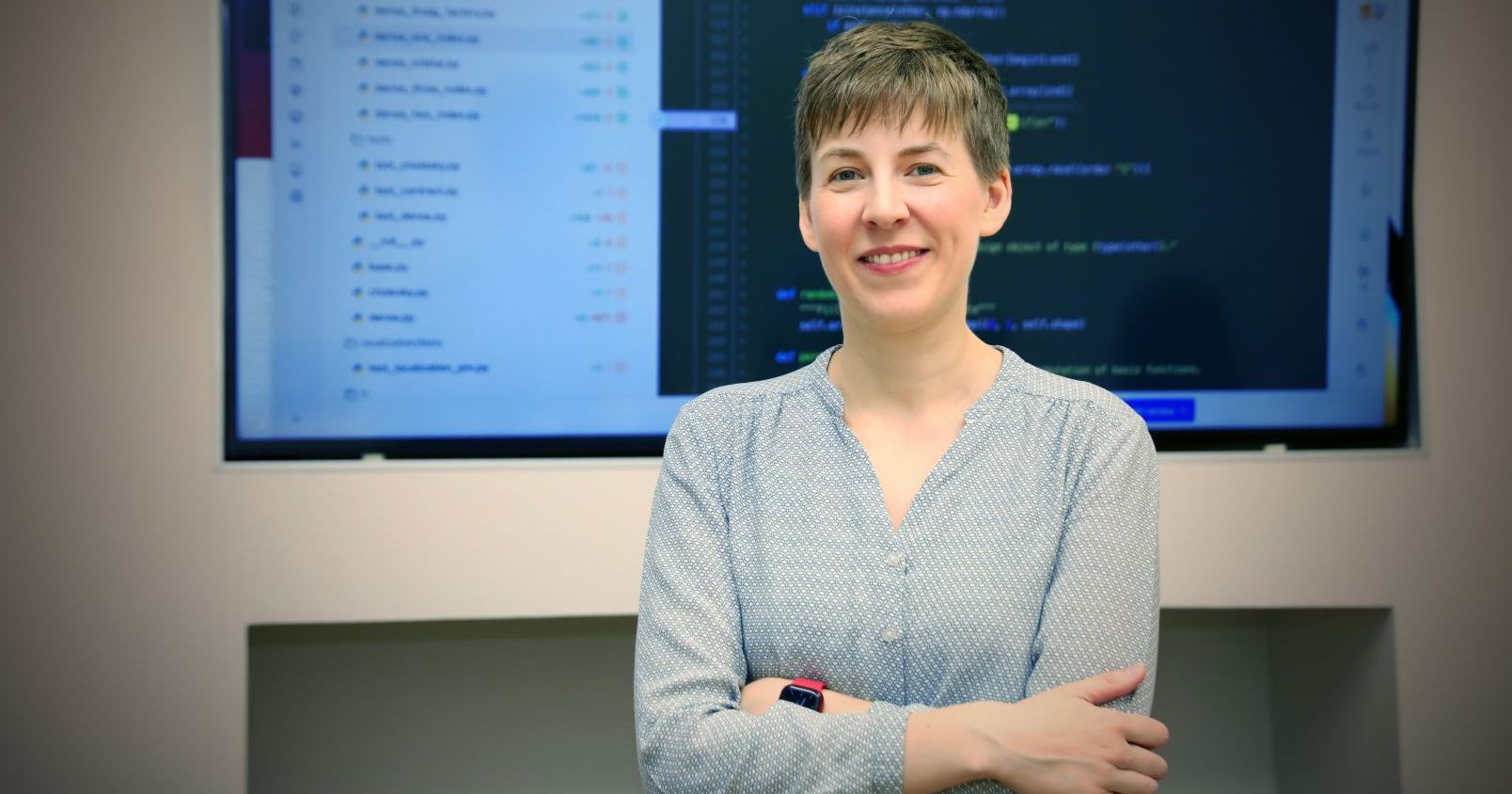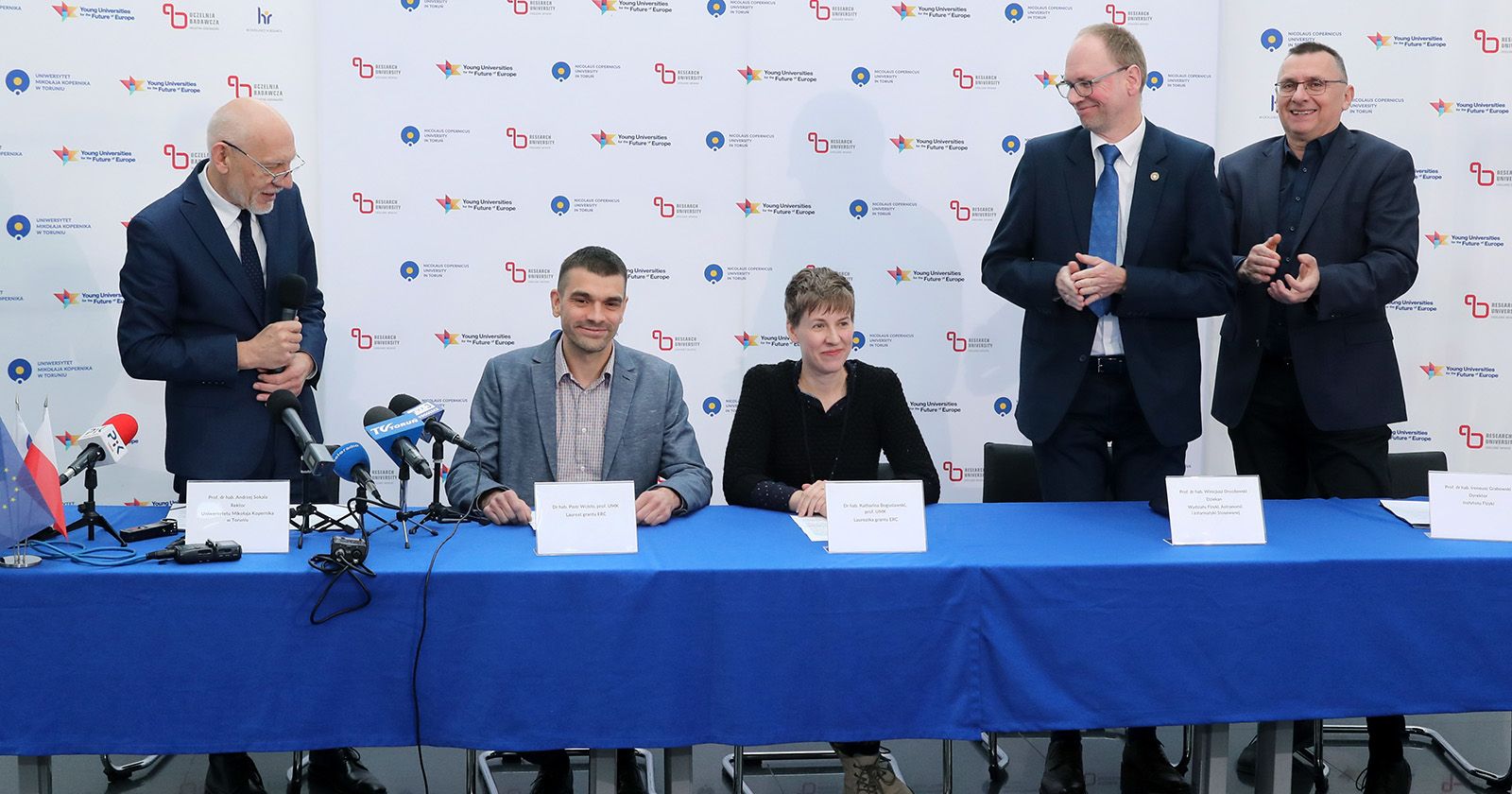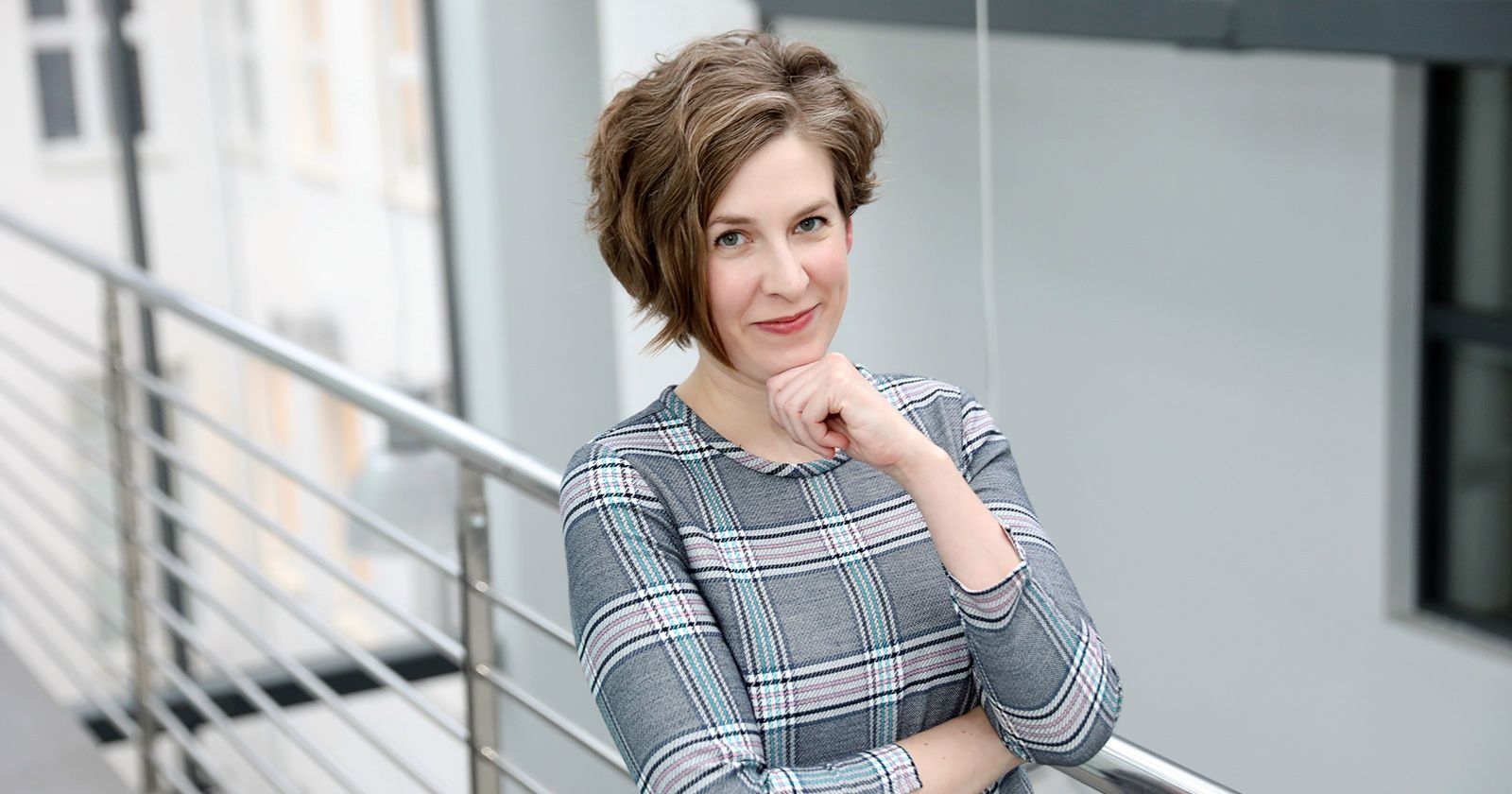 Exact sciences
Exact sciences
NSC Award for Scientific Excellence
Dr habil. Katharina Boguslawski, NCU Prof. from the Faculty of Physics, Astronomy and Informatics, has been awarded the Award of the National Science Centre. This is the most important distinction in the country awarded to early-stage researchers.
Prof Katharina Boguslawski, from the Department of Quantum Mechanics at the Institute of Physics in the NCU Faculty of Chemistry, Astronomy and Informatics, is a quantum chemist whose research combines chemistry, physics, mathematics and applied informatics. Her scientific inquiries focus on the development of novel computational methods to model the properties of large-scale chemical molecules without the need for experimental studies.
She received the National Science Centre Award in the area of science and technology for two achievements: the construction of a reliable and easy-to-use quantum mechanical model of chemical compounds containing actinide atoms, and the design and development of innovative methods for studying the electron structures and tracking chemical reactions of actinides based on quantum information theory.
This award gives me a sense that my research and achievements are really seen and appreciated within the Polish research community", says Prof Katharina Boguslawski.
Guaranteed scientific quality
The National Science Centre Award has been granted since 2013, and each year it is awarded to three researchers, one each from the fields of Arts, Humanities, Social Sciences and, Physical Sciences and Engineering and Life Sciences. It may be awarded to researchers who are under 40 years of age and have significant scientific achievements in basic research, documented by publications affiliated with Polish scientific units. The basic criteria used by the committee assessing the candidates' achievements are their scientific excellence and international recognition.
The NSC Award Committee is composed of members of the Council and the NSC Director. In this year's 11th edition of the competition, candidates could be nominated by nearly 700 persons, including previous winners of the NSC Award, former members of the NSC Council and other outstanding researchers. Each of them could nominate only one person who has not collaborated with the applicant, participated in joint ventures or had joint publications with the applicant in the last five years. The candidate must also not be a doctoral student or a promoted PhD student of the applicant, nor must they have a family or legal relationship.
This year, 53 applications were received, covering 44 nominations (some were submitted independently by several nominators). The area of Physical Sciences and Engineering, in which Prof Katharina Boguslawski was the winner, was the most represented - 20 researchers competed for the laurels. The names of the laureates were announced on Wednesday, 11 October, during the NSC Award ceremony held at the Gallery of 19th-Century Polish Art in Sukiennice, a branch of the National Museum in Kraków.
This year's NSC Award in the area of Life sciences was awarded to dr habil. Łukasz Opaliński from the University of Wrocław, and to dr habil. Karolina Ćwiek-Rogalska from the Institute of Slavic Studies at the Polish Academy of Sciences in the area of Arts, Humanities and Social Sciences.
Recognised and appreciated
Prof Katharina Boguslawski has been working at the Nicolaus Copernicus University for eight years - the researcher returned to Poland in 2015, after spending 26 years abroad. She completed her doctoral studies at the Federal Polytechnic University of Zurich. She also did her postdoctoral training at this university and at McMaster University in Canada. She is a member of the Polish Young Academy of the Polish Academy of Sciences and is also involved in initiatives to provide equal opportunities for women and men in science. Among other things, she participates in the "Become a researcher" campaign of the Polish Young Academy of the Polish Academy of Sciences, which aims to encourage female students to work in science.
The national and international scientific community has recognised and appreciated the importance of her work for a long time. Among others, she is a laureate of the Dirac Medal, she was awarded the START 2016 grant, the Ministry of Science and Higher Education grant for an outstanding young scientist, the prestigious Marie Skłodowska-Curie Action Individual Fellowship European Fellowship (MSCA IF-EF) grant awarded by the European Commission, which she carried out at the NCU Faculty of Chemistry while heading a research group at Faculty of Physics, Astronomy and Informatics, and she is currently pursuing the prestigious ERC Starting Grant awarded in 2022. In turn, the SONATA BIS grant obtained at NCN enabled her to set up her own research group.

– NSC is the agency that has invested in my scientific career and made my professional development possible. I wouldn't be where I am today but for NSC," says Prof Boguslawski.
fot. Andrzej Romański
he submission for the NSC Award emphasised that the subject matter that Prof Boguslawski deals with - the study of chemical compounds containing actinides - is difficult both experimentally and theoretically, and that consequently the mechanisms of reactions involving actinide atoms are poorly understood.
These compounds are components of the radioactive mixture of waste products from nuclear power plants, and knowledge of their properties is crucial for the management of these wastes. It is particularly important to extract the uranium and plutonium compounds from the waste products, which are responsible for their radioactivity and useful for reactor reuse, reads the statement of reasons for the application. - Therefore, the theoretical modelling of chemical processes involving actinides is important for cognitive and practical reasons.
It was also highlighted that several years ago, Prof Boguslawski was already engaged in building a theory aimed at a reliable and feasible description of the properties of chemical compounds containing actinides on currently available computers.
The essence of the new theory is to combine novel modified computational methods of quantum chemistry with qualitative concepts of quantum computing applied to molecular orbitals important for the description of chemical reactions, argues the applicant. - The candidate is pursuing this project with great success, leading the research team she has created."
In assessing the second award-winning achievement ('the design and development of innovative methods for studying the electron structures and tracking chemical reactions of actinides based on quantum information theory'), it was noted that Prof Boguslawski not only derived the formulas defining the new method, but also implemented it into the open-source software package PyBEST.
- The methods produced enable the description of molecules in their ground and excited states with previously unattainable precision and reliability. It has also produced schemes to classify the interactions and reactions occurring between molecules using quantum entanglement of orbitals, the justification reads. - This represents a significant advance in our understanding of chemistry, but it is also of applied importance.
Promising scientific future
When asked about the scientific challenges she has faced in recent months, Prof Boguslawski says she has "reached a stage where all the efforts of her research group and collaborators have brought fruit".
We have built a new software platform from scratch, incorporating all our theoretical models and tools from 2015. 'We have reached a point where we can finally tackle larger problems with more efficient models and implementations,' says Prof Boguslawski. - The initial results are promising.
NCU's group of award winners is growing
 Last year, the NSC Award - also in the area of Physical Sciences and Engineering - went to dr habil. Piotr Wcisło, NCU Prof., from the Department of Atomic, Molecular and Optical Physics at the Institute of Physics in the NCU Faculty of Physics, Astronomy and Informatics. He was honoured for two scientific achievements. The first is the development of a new method of searching for dark matter using optical atomic clocks, and the second is the use of ultra-precise laser spectroscopy to test quantum theory and search for new physics beyond the existing theory of the structure of matter. Prof. Piotr Wcisło points out that the NSC Award may have a positive impact on the image of female researchers and interest in academic careers: - Currently, a crisis of interest in scientific work can be observed. Today's world offers many attractive options, and it is important to create a positive image of scientists - not as old men who sit alone somewhere deep in their offices, but as modern entrepreneurs who use ultra-modern technologies, have an interesting career ahead of them, and travel the world, explains Prof. Wcisło. - It seems to me that this award creates exactly such an image.
Last year, the NSC Award - also in the area of Physical Sciences and Engineering - went to dr habil. Piotr Wcisło, NCU Prof., from the Department of Atomic, Molecular and Optical Physics at the Institute of Physics in the NCU Faculty of Physics, Astronomy and Informatics. He was honoured for two scientific achievements. The first is the development of a new method of searching for dark matter using optical atomic clocks, and the second is the use of ultra-precise laser spectroscopy to test quantum theory and search for new physics beyond the existing theory of the structure of matter. Prof. Piotr Wcisło points out that the NSC Award may have a positive impact on the image of female researchers and interest in academic careers: - Currently, a crisis of interest in scientific work can be observed. Today's world offers many attractive options, and it is important to create a positive image of scientists - not as old men who sit alone somewhere deep in their offices, but as modern entrepreneurs who use ultra-modern technologies, have an interesting career ahead of them, and travel the world, explains Prof. Wcisło. - It seems to me that this award creates exactly such an image.
 NCU News
NCU News






 Exact sciences
Exact sciences


 Exact sciences
Exact sciences